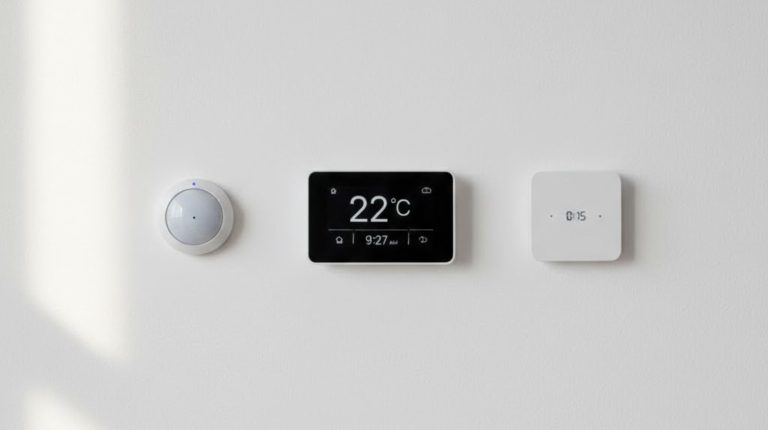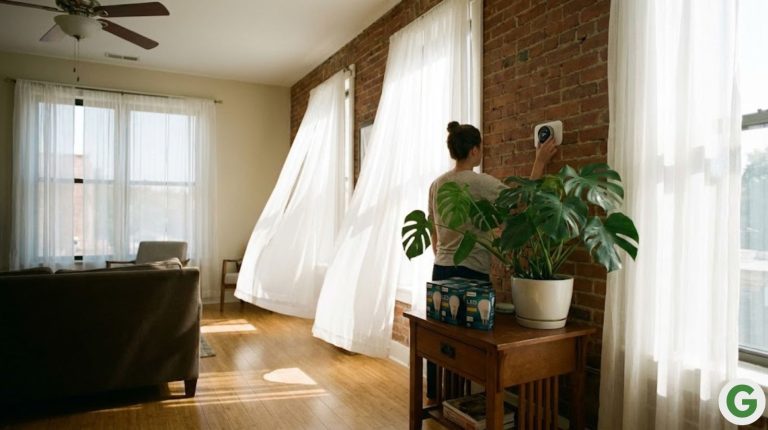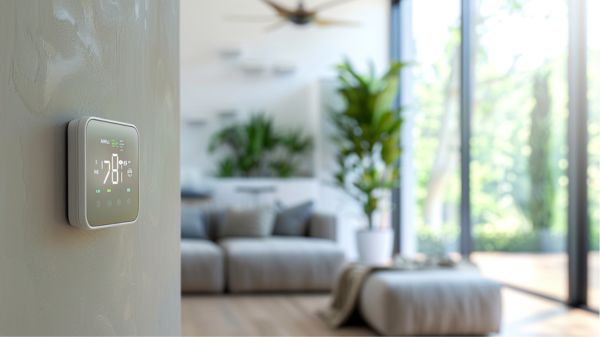Are you looking for ways to make your home more sustainable? Look no further! Our team has compiled a list of the top home energy conservation methods that will not only help you save money on your utility bills but also contribute to a more sustainable future.
By implementing these methods, we can all do our part in reducing our energy consumption and promoting a greener environment. From switching to energy-efficient lighting and appliances to insulating your home and utilizing renewable energy sources, there are plenty of options to choose from.
So join us on this journey towards sustainability and let’s make our homes more energy-efficient together.
Light Bulb Replacement
One important method for achieving home energy conservation and sustainability is through the replacement of traditional incandescent bulbs with energy-efficient LED bulbs.
LED light bulbs are designed to provide the same amount of light as incandescent bulbs but use up to 90% less energy, resulting in significant energy savings.
By reducing energy consumption, these bulbs lower electricity usage, which in turn leads to lower energy bills.
Lighting accounts for a considerable portion of a home’s energy waste, and by improving the efficiency of our light sources, we can make a significant impact on reducing our overall energy waste.
When selecting LED bulbs, look for the Energy Star symbol, as these bulbs are certified to meet strict energy efficiency standards.
By making this simple switch, along with other energy-saving measures such as using natural light whenever possible and controlling fixtures with timers or photocells, we can create a more sustainable and energy-efficient home.
Additionally, installing efficient windows can further enhance energy efficiency by reducing heat transfer and improving insulation.
Smart Power Strips
To further enhance home energy conservation and sustainability, let’s explore the benefits of incorporating smart power strips into our energy-saving strategies.
- Reduce energy consumption: Smart power strips help eliminate phantom loads, which can account for 5-10% of residential energy use. By shutting off power to electronics when not in use, they significantly reduce energy consumption in the home.
- Convenient energy management: These power strips can be controlled through remote switches, allowing for easy and convenient energy management for multiple devices. This means we can easily turn off power to multiple electronics with just the flip of a switch.
- Cost-effective solution: Smart power strips are a cost-effective way to reduce standby energy usage in homes. They provide an energy-efficient alternative to constantly unplugging devices.
- Complements renewable energy sources: Smart power strips are a perfect addition to homes with solar panels or other renewable energy sources. They help maximize the benefits of these sources by saving energy and reducing electricity usage.
Incorporating smart power strips into our homes is a practical and effective way to save energy and contribute to energy conservation efforts.
Programmable Thermostat Installation
We highly recommend installing a programmable thermostat to optimize our energy consumption and achieve sustainable home energy conservation.
By installing a programmable thermostat, we can have better control over our heating and cooling settings, allowing us to reduce energy usage when we aren’t at home or during periods of low activity.
Before installation, conducting an energy assessment can help identify areas of improvement in our home, such as air leakage around windows and doors or insufficient insulation.
Once the thermostat is installed, we can set temperature schedules that align with our lifestyle, ensuring comfort while conserving energy.
Additionally, regularly changing air filters and maintaining a well-insulated home will contribute to energy conservation.
Energy-Efficient Appliance Purchases
When purchasing appliances, we frequently choose energy-efficient models with high Energy Star ratings to ensure sustainability and cost savings.
Here are some tips to consider when buying energy-efficient appliances:
- Opt for an electric water heater instead of a gas water heater. Electric water heaters are more energy-efficient and can save you money on your utility bills.
- Wash your clothes in cold water whenever possible. Heating water accounts for a significant amount of energy usage, so switching to cold water can help reduce your energy consumption.
- Use blinds or shades on your windows to regulate the amount of heat and light that enters your home. This can help maintain a comfortable temperature and reduce the need for excessive heating or cooling.
- Seal any air leaks in your home to prevent drafts and energy loss. This can be done by using weatherstripping or caulking around windows, doors, and other areas where air can escape or enter.
Water Heating Expense Reduction
One effective way to reduce water heating expenses is by insulating your water heater and pipes. By doing so, you can prevent heat loss and lower the amount of energy consumed to heat your water. Insulating your water heater and pipes helps to maintain the heat within the system, reducing the need to continuously reheat the water.
Another way to reduce your water heating expenses is by using less hot water. Simple actions like taking shorter showers, washing clothes in cold water, and using energy-efficient appliances can significantly reduce your hot water usage. Additionally, turning down the thermostat on your water heater can also lead to noticeable savings on your energy bills.
Conclusion
In conclusion, implementing home energy conservation methods is essential for promoting sustainability and reducing utility bills.
One interesting statistic to consider is that replacing traditional incandescent light bulbs with LED bulbs can save up to 80% energy and last up to 25 times longer.
By making small changes like this, we can make a significant impact on our energy consumption and contribute to a more sustainable future.



